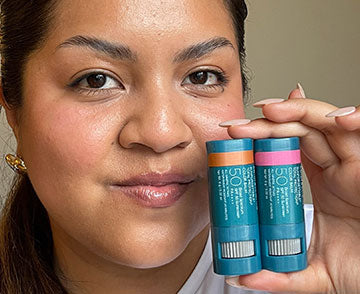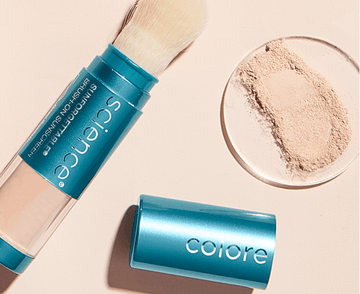
Does Sunscreen Expire?
Sunscreen is one of the most important steps in our daily skincare routines. From shielding the skin from harmful UV rays, preventing premature ageing and worsening pigmentation, it is a staple product that we should not skip. However, accidentally using sunscreen that has expired can actually put your skin at more risk. In this article, we’ll explore the question of “does sunscreen expire?”, how to identify if your sunscreen has expired, and share tips on how to get the most out of your SPF products.
Does sunscreen expire?
The shelf life of sunscreen
Unfortunately, yes, sunscreen does expire. Most sunscreens have a shelf life of 12 months from opening, but this can vary by brand and formulation. To be safe, it is always best to check the packaging for further instructions.
What happens when sunscreen expires?
When sunscreen expires, it sadly loses its ability to block harmful UV rays effectively, and continuing to use it can result in inadequate protection, therefore increasing your risk of sun damage, sunburn, and long-term skin issues.
How to check if your sunscreen is expired
Look for the expiration date
Most sunscreens will have an expiration date printed onto the bottle. In addition to this, some may have a symbol of a jar with a number inside or underneath, which indicates the number of months that the product is safe for use after opening. Typically, these numbers will be 6, 12, or 24. If there is no visible date, it is a good idea to dispose of any sunscreen that has been open for longer than you can remember.
Inspect the product for changes
Often we can tell just by looking at a product if it has gone off. Here are some of the key warning signs to look for:
- Texture: Clumping or separation of ingredients can indicate spoilage.
- Colour: Discolouration or yellowing often signals that the product has expired.
- Smell: A rancid or unusual odor is a clear sign the product has gone bad.
Consider when you purchased it
If you can’t remember when you bought your sunscreen, it’s better and safer to just replace it. Also, improper storage, such as leaving sunscreen in a hot car or under direct sunlight on a windowsill can shorten its shelf life.
Signs you need to replace your sunscreen
Expiration date has passed
Do not attempt to use the sunscreen, as the ingredients may no longer provide adequate protection against the sun.
Visible changes in the product
Visible changes such as oil separation and foul odours are clear warning signs that the product is no longer safe to use.
Reduced effectiveness or sunburn after use
If you notice that even after using the sunscreen (and reapplying consistently) that you are seeing an increase in redness, sunburn or irritation, it is likely a sign that the sunscreen has expired and is no longer effective.
Damage to the packaging
Any noticeable damage to the sunscreen packaging, such as a cracked lid or a leak may mean that the sunscreen formulation has been compromised, as it may have been exposed to unsuitable temperatures.
Expert tips for keeping your sunscreen effective
Store sunscreen properly
- Keep sunscreen in a cool, dark place, away from direct sunlight, including sat on your windowsill.
- Avoid storing sunscreen in unstable temperature environments, such as cars or bathrooms.
Replace sunscreen regularly
Just as you would with your other beauty products, make sure you are checking your sunscreen’s expiration date and replace it annually as part of your skincare routine.
Use it before it expires
With regular application and reapplying daily, you can ensure that you use up your sunscreens well before they expire, helping to minimise product waste, whilst maintaining optimal levels of protection.
Sunscreen Expiration 101
Using sunscreen that is effective is essential for maintaining healthy and protected skin. By following our expert tips listed above, you can ensure optimal protection against harmful UV rays.
Ready to prioritise your skin health? Take our SPF quiz to get matched to your perfect protector today.


